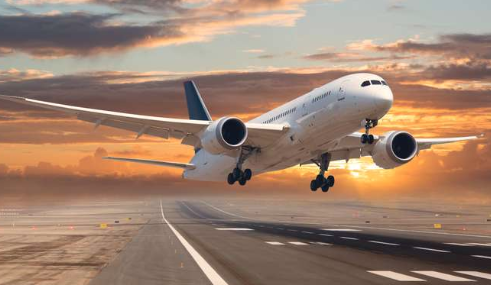SEOUL — For years, Southeast Asia has been a favored escape for South Korean travelers seeking affordable beaches, historic temples, and convenient short-haul flights. But in recent months, a wave of violent crime reports — most prominently in Cambodia — has reshaped that relationship, rippling across neighboring destinations including Thailand, Malaysia, the Philippines, Vietnam, and Laos.
What began as a national tragedy in Cambodia, involving the killing of a South Korean university student allegedly at the hands of a local criminal group, has evolved into a broader crisis of confidence. South Korean media coverage of online job scams, forced labor compounds, and abductions has been relentless, prompting many travelers to question whether Southeast Asia remains a safe place to visit.
South Korea’s outbound tourism data reflects the shift. Departures to Southeast Asia fell 7.25 percent in October, with Cambodia’s arrivals from South Korea dropping 15.4 percent month-to-month, according to Korean travel industry statistics. Travel agencies in Seoul and Busan report cancellation waves of 10 to 20 percent for early-2025 bookings, particularly for Cambodia.
But Cambodia is no longer alone in facing skepticism.
Thailand and Malaysia Respond as Fears Spill Over Borders
Authorities in Thailand have been unusually public in their response. The Tourism Authority of Thailand (TAT) issued statements in October emphasizing enhanced police presence in major tourist zones like Bangkok, Phuket, and Chiang Mai. Thai media outlets such as The Nation and Thai PBS have highlighted new initiatives — from multilingual “Tourist Help” kiosks to expanded CCTV networks — designed to reassure foreign visitors.
Yet even Thailand, long South Korea’s top Southeast Asian destination, recorded a 5 percent decline in Korean arrivals in October, according to Thai government figures cited by domestic newspapers. Travel agencies say the dip is modest but noteworthy given Thailand’s historically resilient appeal.
In Malaysia, coverage in The Star and New Straits Times has cited growing concerns about regional crime perception, even as Malaysian officials emphasize that the country has not experienced incidents targeting Korean travelers at anywhere near the scale seen in Cambodia. Kuala Lumpur International Airport and popular tourist districts have increased uniformed patrols “as a proactive measure,” officials told Malaysian reporters.
Still, Korean tour operators say the real issue is perception — and perception now transcends borders.
The Philippines and Beyond: A Regional Unease
The Philippines, another long-time favorite among South Korean tourists, reported an 18.9 percent decline in Korean arrivals in October. Local news outlets such as Philippine Daily Inquirer link the downturn partly to Cambodia’s headlines, noting that safety concerns tend to “regionalize quickly” among foreign tourists.
Concerns have also extended to Vietnam, Laos, and even Indonesia, where tourism-dependent local economies monitor Korean sentiment closely. While these countries have not reported major incidents involving South Koreans, travel agents say customers increasingly view Southeast Asia as a collective risk zone.
A Blow to Economies Built on Tourist Confidence
South Korea is one of Southeast Asia’s most valuable tourism markets. Before the pandemic, Koreans were the No. 1 inbound group to countries such as Vietnam and the Philippines, and among the fastest-growing segments in Thailand and Malaysia.
The current downturn threatens already fragile post-pandemic tourism recoveries. Economists in Bangkok and Phnom Penh warn that continued declines through early 2025 could slow hiring, stall hotel occupancy growth, and delay investment in tourism infrastructure.
Cambodia is facing the steepest fallout. Hotel associations in Siem Reap report booking drops of up to 25 percent compared with earlier projections, while Phnom Penh travel operators say corporate bookings from South Korea — once a stable segment — have sharply declined.
Southeast Asian Governments Commit to Security Measures
Officials across the region have announced a series of steps aimed at restoring traveler trust:
- Cambodia has pledged crackdowns on criminal syndicates, including cross-border cooperation with Korean authorities.
- Thailand is expanding its tourist police force and installing hundreds of new CCTV cameras in high-traffic tourism corridors.
- Malaysia has announced plans for joint patrols in several major cities and airports during peak tourist seasons.
- The Philippines has intensified monitoring of tourist zones, highlighting “zero-tolerance” policies for crimes against foreigners.
International bodies — including foreign embassies, INTERPOL, and regional tourism associations — have encouraged coordinated action to combat job-scam networks, many of which operate across multiple Southeast Asian countries.
What Travelers Should Know Before Visiting Southeast Asia
Travel experts in South Korea recommend several practical steps for travelers considering trips to the region:
- Check official travel advisories issued by the South Korean Foreign Ministry and local governments.
- Book through licensed and reputable travel agencies, especially when job offers or package deals seem unusually cheap.
- Stick to major tourist hubs with established security infrastructure.
- Purchase comprehensive travel insurance that includes emergency support.
- Save emergency contacts, including local police numbers and Korean embassy hotlines.
These precautions, specialists say, allow travelers to enjoy Southeast Asia safely while avoiding the situations that have triggered recent concerns.
Can Trust Be Restored?
Recovery will depend on whether Southeast Asian governments can demonstrate that they can protect foreign visitors from emerging criminal networks associated with online scams, trafficking, and kidnapping. Analysts say restoring confidence among South Korean travelers may take months — and sustained transparency.
Until then, tour operators expect many Korean vacationers to redirect to Japan, Taiwan, Europe, or domestic destinations.
Southeast Asia’s tourism sector, once booming with Korean visitors, now finds itself in a race to regain trust — and to prove that the tragedies and criminal activity of recent months are exceptions rather than the new normal. (hb)

